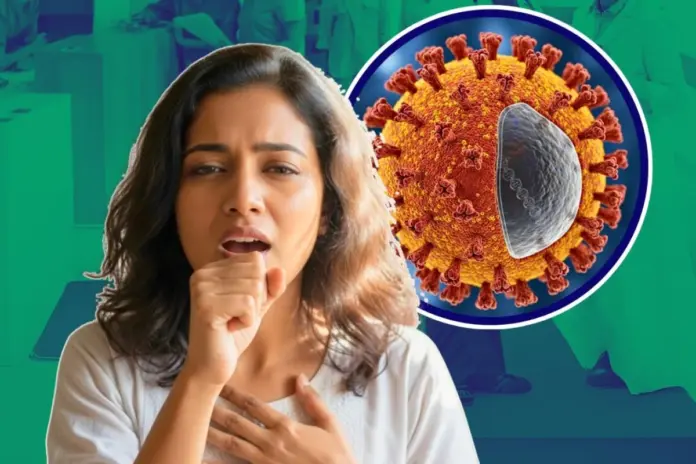A sudden surge of H3N2 flu illness symptoms is gripping Delhi-NCR and rapidly spreading across India. Families are reporting fever, cough, and fatigue, with hospitals witnessing an increasing number of cases daily.
Experts confirm that H3N2 influenza is driving the majority of infections, making awareness crucial. With flu-like illnesses on the rise in India, doctors are urging people to recognize the early signs and follow strict preventive measures.
Flu Cases Surge Across India, Delhi-NCR Hardest Hit
Tatva India reported that the illness reports, which started primarily in Delhi-NCR, are now spreading across several states in India. A LocalCircles survey revealed nearly 70% of households in Delhi, Gurugram, Noida, Faridabad, and Ghaziabad.

All have reported at least one family member down with viral fever, cough, or flu-like illness. This surge is driving medical visits sharply upward. Doctors say the H3N2 influenza cases in the Delhi NCR region are dominating, with similar spikes also noted in Bengaluru, Mumbai, and Lucknow.
Understanding H3N2 Strain and Its Distinct Impact
The H3N2 strain is a subtype of Influenza A and is now emerging as a dominant cause of sickness across urban clusters. Unlike common seasonal viruses, it often triggers rapid fever, severe cough, and fatigue that lasts longer.
Doctors at AIIMS and Safdarjung Hospital have flagged that the H3N2 flu illness symptoms are being reported with an intensity not seen in regular cycles. Such prolonged fatigue and body pain are worrying patients, especially in younger age groups. This different impact makes awareness crucial.
H3N2 Flu Illness Symptoms – Key Signs to Watch Out For
Doctors highlight both early and severe signs that must be closely monitored in patients displaying flu-like illnesses, which are rising in India.
- High fever, sudden in onset, often above 38 to 39°C
- Intense chills with body aches and fatigue
- Persistent headache with muscle pain
- Irritating sore throat lasting several days
- Dry cough, blocked nose, and sneezing
- Prolonged nasal congestion is often mistaken for a simple cold
For those infected, these H3N2 flu illness symptoms often persist longer than those of usual seasonal infections, requiring careful attention.
How H3N2 Spreads and Who Is Most Vulnerable?
The H3N2 strain spreads quickly through coughing, sneezing, or contact with contaminated surfaces. Children, elderly people above 65, pregnant women, and patients with asthma, heart disease, or diabetes face higher risks.
In kids, symptoms may also include nausea, vomiting, or diarrhoea. For elderly patients, doctors caution against the risk of pneumonia or worsening of chronic conditions when recovery is delayed.
Prevention Tips: Vaccination, Hygiene, and Early Care
Doctors urge vaccination against influenza as the primary barrier. Washing hands often, avoiding crowded gatherings, and wearing masks in public spaces help limit the spread.
Experts recommend that flu-like illnesses in India be addressed with immediate consultation when a high fever persists for more than three days.
Health Authorities Issue Advisories and Step Up Measures
The Indian Council of Medical Research (ICMR) has issued guidelines urging citizens to identify symptoms early and avoid self-medication. The Delhi government has directed hospitals in the Delhi NCR region to prepare isolation wards for suspected H3N2 influenza cases.
State health officials in Maharashtra and Karnataka have also asked schools to spread awareness among students and parents.
Experts Share Insights on H3N2’s Current Spread
Dr. Randeep Guleria, former Director of AIIMS, explained that H3N2 flu illness symptoms often appear more severe than those of typical viral fevers. He added that hospitalization is not required for most cases, but early recognition of severe breathing trouble is key.
Dr. Vikas Maurya of Fortis Shalimar Bagh warned about the growing pattern in Delhi-NCR, urging vaccination in high-risk groups and prompt management in children.
Flu-like illnesses are rising in India, revealing fresh challenges, with experts urging quick action, timely vaccination, and simple hygiene measures to safeguard families.



